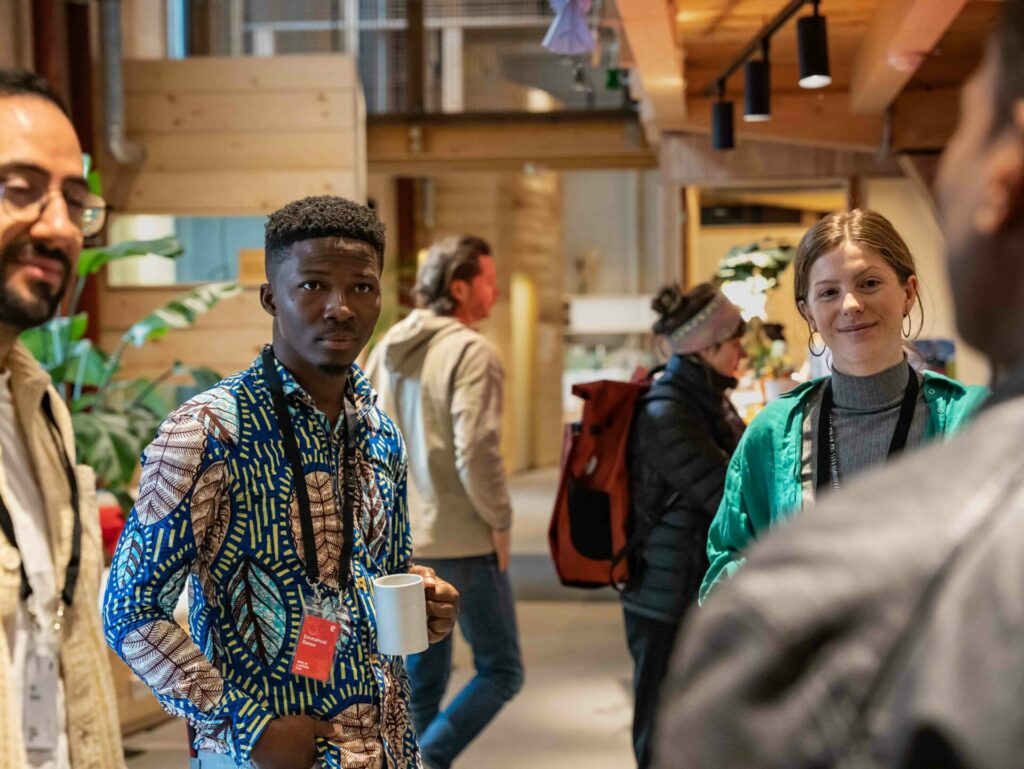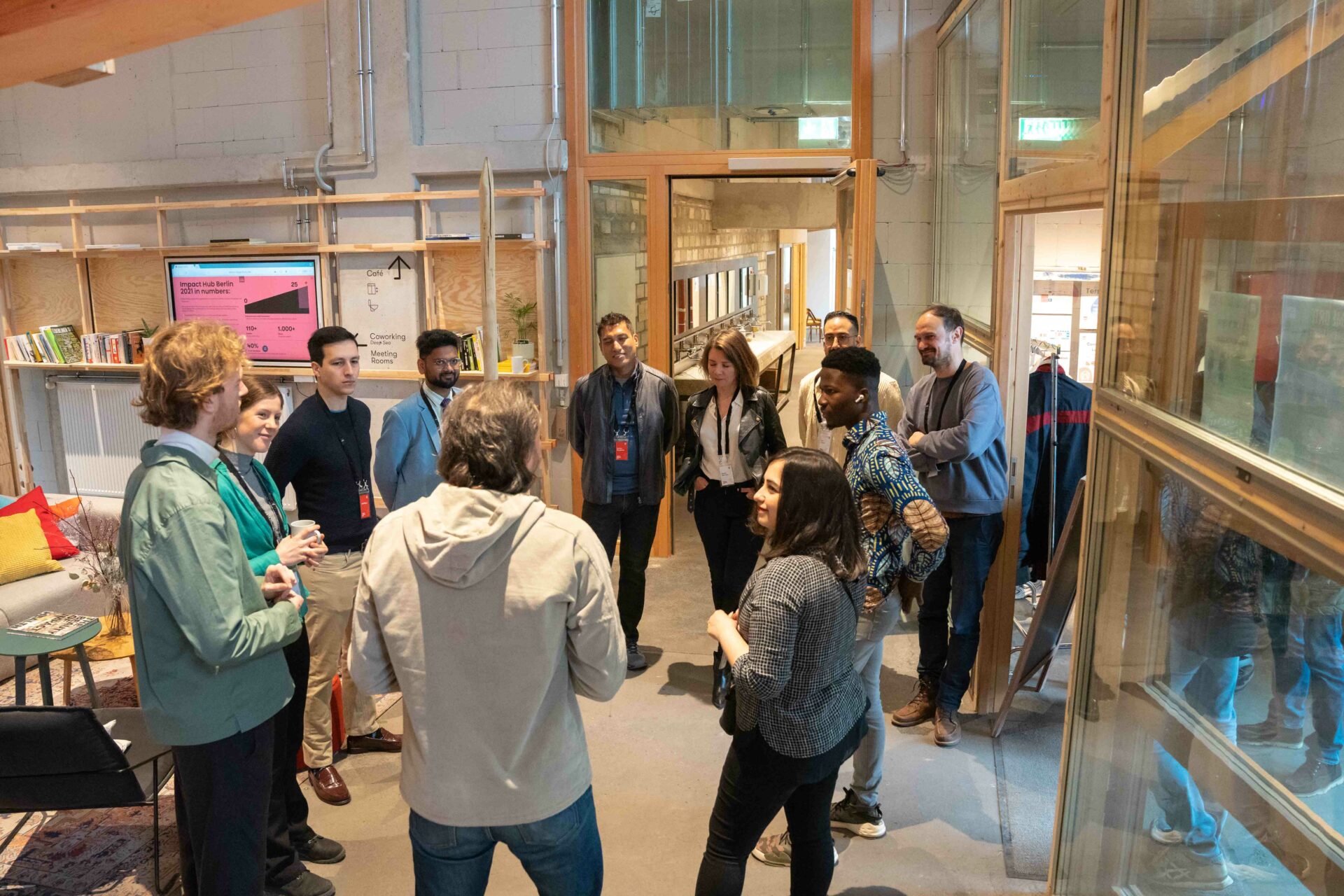Innovate Africa Challenge
JOIN THE INNOVATE AFRICA CHALLENGE ON CIVIL DRONES FOR AGRICULTURE, GREEN INFRASTRUCTURE, AND CLIMATE ACTION
What's the Innovate Africa Challenge?

The Innovate Africa Challenge on Civil Drones is part of the Triangular Cooperation for Digital Innovation Made in Africa programme, building on the earlier success of the Innovate Africa Challenge on AI for Climate Action. Its aim is to highlight how cutting-edge technology can create real impact on the ground.
This new challenge focuses on cultivating a civilian-led, inclusive, and scalable drone ecosystem designed to tackle pressing local issues and generate long-lasting benefits for communities. By strengthening the use of data-driven digital solutions, the programme supports the application of drone technology across agriculture, green infrastructure, and climate action. African innovators will have the opportunity to develop, test, and roll out ideas that are both regionally relevant and capable of scaling.
The winning solution will be piloted in either Rwanda or Côte d’Ivoire – two countries with thriving drone sectors, enabling policies, and high demand for agricultural and climate-focused innovations. These ecosystems offer the ideal environment for testing and demonstrating the potential of civil drone solutions.
Timeline
Challenge focus
WHY DRONE TECHNOLOGY?
Africa’s drone market is on a sharp growth trajectory, with revenue expected to hit US $49.08 million in 2025, growing annually at 6.03% (CAGR) and reaching over 141,000 units by 2030 (Statista, 2025). This growth reflects a rising demand for aerial solutions across sectors, including agriculture, green infrastructure and climate action – especially in hard-to-reach areas.
THEMATIC AREAS
This challenge is open to all drone solutions for agriculture, green infrastructure or climate action. Solutions may be deployed in the following thematic areas or explore alternative applications:
- Precision farming and spraying
- Crop health monitoring and mapping
- Soil or moisture analysis and mapping
- Livestock tracking and productivity
- Public health
- Humanitarian aid
- Mining/Infrastructure inspections
♻️ Green infrastructure
- Renewable energy systems
- Green building construction
- Sustainable transport networks
- Real-time monitoring and structural analysis
🌍 Climate action
- Early-warning systems for climate disasters
- Environmental and biodiversity monitoring
- Land degradation mapping and conservation planning
- Carbon measurement and reforestation
INNOVATION TYPE
Solutions submitted to the challenge should demonstrate hardware, software, or system innovation.
🚁 Drone type
- Fixed-wing drones
- Multi-rotor (quadcopters, hexacopters)
- VTOL (Vertical Take-Off and Landing)
- Hybrid drones (e.g., fixed-wing + rotor)
⚙️ Hardware accessories
- Sprayers
- Sensors
- Cameras
- Modular Attachments
🧑💻 Software
- Flight planning and control systems
- Image/data processing platforms
- AI/ML for detection, diagnostics, analytics
- Cloud-based dashboards for data visualization
📊 System
- Logistics
- Regulation
- Business or partnership models
- Energy or data ecosystems
Benefits for successful applicants
Phase 1: Ideation – for the top 10 solutions
- Bootcamp training to refine your solution and prepare to pitch
- Connect with peers, as well as ecosystem experts and mentors
Phase 2: Incubation – for the top 5 solutions
- Expert support and mentoring to develop and prototype your solution
- Match with a mentor to support you throughout the challenge
- Be guided by an experienced business coach to help you achieve your milestones
Phase 3: Implementation – for the winning solution
- Tailored support from experts and mentors
- €50,000 prize money bring your solution to life in Rwanda or Côte d’Ivoire
Who can apply?
To be eligible to apply for the Innovate Africa Challenge on Civil Drones you should:
- Have a drone solution for agriculture, green infrastructure or climate action
- Developed your solution to either:
- Idea stage: A well-developed idea or concept note that outlines the proposed solution, its intended impact, potential users, and basic feasibility.
- Proof of Concept (PoC) stage: Testing the operational feasibility of the proposed solution.
- Be part of an organisation (start-ups, SMEs, NGOs, NPOs or other), which:
- Was registered at least 6 months ago
- Is registered in one of the 40 Smart Africa States: Algeria, Angola, Benin, Burkina Faso, Burundi, Cameroon, Cape Verde, Central African Republic, Chad, Comoros, Congo, DR Congo (Democratic Republic of Congo), Côte d’Ivoire, Djibouti, Egypt, Eswatini, Gabon, Ghana, Guinea, Kenya, Madagascar, Malawi, Mali, Mauritania, Morocco, Niger, Nigeria, Rwanda, São Tomé and Príncipe, Senegal, Sierra Leone, South Africa, South Sudan, Sudan, The Gambia, Togo, Tunisia, Uganda, Zambia, Zimbabwe
What will the solution be evaluated against?
In addition to the eligibility criteria outlined above, solutions will also be evaluated against the following factors throughout the challenge phases:
→ Commitment and Motivation: Commitment to participating in the challenge and a high motivation to engage, as well as an openness to coaching and feedback
→ Implementation Potential: Openness and technical feasibility to deploy the solution in one of the target countries (Rwanda or Côte d’Ivoire) using existing tools and resources
→ Team Expertise: Complementary experience and skills in business and drone technology
→ Team Strength: Demonstrable team alignment, communication, and collaboration
→ Team Diversity: Gender balance and representation of youth or other underrepresented communities
→ Innovation: Hardware, software or system innovation, demonstrating a novel development or application of drone technology
→ Sustainability: Environmental and ecological aspects of the solution have been considered and addressed
→ Impact: Clear economic, social, and environmental impact (or potential impact) and connection to recognised fields of climate change adaptation or mitigation and agriculture, with alignment to the climate goals of Rwanda or Côte d’Ivoire
→ Scalability: Strong potential for scaling across Africa and internationally, as well as an interest in growing the organisation, with a clear business model and value proposition to an identified customer base, sustainable revenue and cost model, and high level of competitiveness
→ Revenue: Solution should not yet be generating revenue for the organisation or be provided to paying customers
→ Compliance: Solution should be compliant with all relevant regulations within the country of registration or operation, and have the required licences or detailed processes to acquire licences necessary for implementation in Rwanda or Côte d’Ivoire
→ Adaptability: The solution should be adaptable to new developments in available drone technology and evolving climate-related challenges

Partners

FAQs
How much will the winning solution receive?
The team with the winning solution will be awarded 50,000 EUR to implement their solution in either Rwanda or Côte d’Ivoire. The team will be required to engage in regular progress check-ins and provide written updates on the implementation status of the solution.
Do I need to already be based or operating my solution in Rwanda or Côte d'Ivoire?
No, the call for solutions is open to all 40 Smart Africa states. However, you must be open to implementing the solution in Rwanda or Côte d’Ivoire if it is selected as the winner.
How much time commitment is the challenge?
- Phase 1: Ideation – You / your team needs to commit 20 hours over two weeks.
- Phase 2: Incubation – You / your team needs to commit at least 3-4 hours a week.
- Phase 3: Implementation – You / your team needs to commit up to 6.5 hours a week.